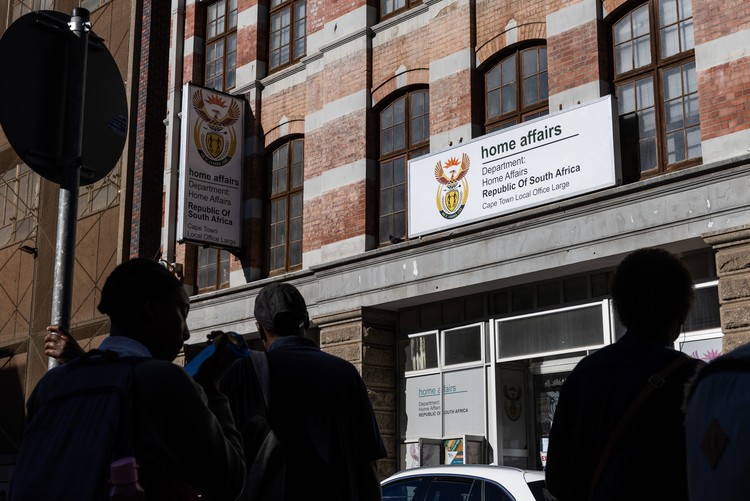
25 April 2025
Nozamikhaya Bikhwe submitted DNA test results to Home Affairs eight years ago, but her 22-year-old daughter Inathi has still not received a birth certificate. Archive photo: Ashraf Hendricks
There are no official records of Inathi Bikhwe’s birth in the Eastern Cape 22 years ago. She has spent the last eight years trying to get Home Affairs to issue a birth certificate, without success.
Bikhwe’s mother Nozamikhaya Bikhwe said Inathi was born at home in the village of Tsolo, with her mother-in-law in attendance. Nozamikhaya said she did not visit the clinic while she was pregnant, as it was too far away.
“I was living in a rural area where clinics were very far and transport was expensive,” she said. Getting to a Home Affairs office was also difficult. It was only after moving to Cape Town four months after giving birth to Inathi, that Nozamikhaya was able to take Inathi for immunisations.
Although Inathi did not have a birth certificate, Nozamikhaya said the nurses were understanding and gave her a clinic card. “That’s how she has been able to access healthcare,” she said.
After attempting to register Inathi’s birth, she was told she’d need to obtain DNA tests, which cost R2,100. She said it was only in 2017, after her husband got a job, that she was able to afford the DNA test.
The results stated there was a 99.9% certainty that she is Inathi’s mother, but despite the DNA evidence, Inathi’s birth certificate has still not been issued. After eight years, the family is feeling hopeless.
Nozamikhaya said in 2017 she also applied for a birth certificate for her older son, but he died in 2018 while they were still waiting for his documents.
“When my son died, the mortuary refused to release his body because he had no birth certificate or ID. I had to write an affidavit and take DNA test results to prove he was my child before they finally released his body for burial,” she said.
“We are getting old and we will die soon. Who will take care of Inathi? She can’t get a job and she can’t even prove that she is a South African.”
Inathi said that without a birth certificate, and consequently without an ID, she feels like her life is on hold. She said her lack of documentation has limited her opportunities, even preventing her from finishing matric.
She said even getting enrolled in school was a struggle.
“Some schools turned me away because I had no birth certificate. One year I got really lucky and was placed in a school, but because of my age I had to start in Grade 5,” said Inathi
Despite the setbacks, she pushed through and made it to matric in 2022, but needed an ID to write her final exams.
“I had to drop out because I knew I wouldn’t be able to write my final exams without an ID. That was painful because I really wanted to finish school,” she said
Finding work has not been possible.
“I have tried looking for jobs, but everywhere I go they ask for an ID. I have now given up because I know I won’t get hired without it,” said Inathi.
She said without her own ID, she also cannot get a birth certificate for her seven month-old daughter.
“I can’t even apply for a social grant for my daughter. I have no way to buy her food or nappies, we both depend on my father because he is the only one working.”
She said she last visited the Home Affairs office in November 2024.
“A lady told me she couldn’t help me because there were two different birth dates on my application, and she wasn’t sure which one was correct. I told her the correct date but she just looked at my file and said my case was too old,” said Inathi.
Inathi Bikhwe looks through documents received from Home Affairs in 2017 after applying for a birth certificate. She has yet to receive one. Photo: Phumeza Halonisi.
Stanley Malemetja is an attorney with the Centre for Child Law. He said births are supposed to be registered within 30 days, but the law makes provision for late birth registration, including for people over the age of 18.
“In such cases, the person may apply for their own birth registration. The application must meet several requirements, such as an affidavit by someone who witnessed the birth, the applicant’s biometrics, certified copies of the parents’ IDs, and any other supporting documents like death or marriage certificates, if relevant,” said Malemetja
He said if the application is rejected, Home Affairs must provide the applicant with written reasons so they can take steps to appeal or correct the issue.
When GroundUp contacted Home Affairs on 24 March, spokesperson Siyabulela Qoza asked for the family’s contact details, which were provided after obtaining permission to do so. We have heard nothing from Home Affairs since then.